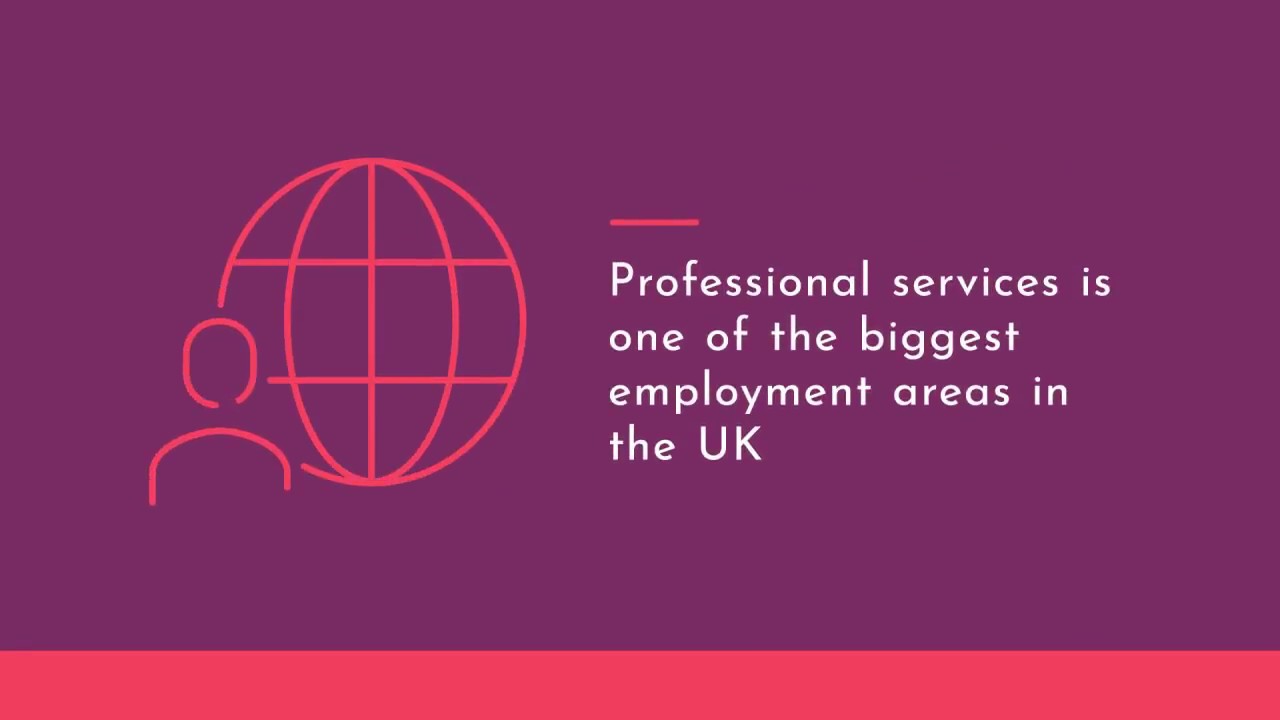Choosing a careerpath can be a daunting decision, and with so many options available, it can be challenging to know where to begin. One path that has become increasingly popular in recent years is professional services. In this article, we'll explore if is professional services a good career pathto help you determine if it's the right career path for you. Professional services careers, such as accounting, consulting, law, and engineering, offer many benefits, but they also come with their unique set of challenges.
What Jobs Are Professional Services?

What are professional services?
Professional services refer to a range of careers that require specialized knowledge and expertise to help clients achieve their goals. Here are some examples of jobs that fall under professional services:
- Accounting - Accountant, auditor, tax consultant
- Consulting- Management consultant, businessanalyst, IT consultant
- Law -Lawyer, paralegal, legal consultant
- Engineering- Civil engineer, mechanical engineer, electrical engineer
- Architecture- Architect, interior designer, landscape architect
- Finance- Financial advisor, investment banker, wealth management advisor
- Marketing- Brand strategist, market research analyst, digital marketer
- Human Resources - HR consultant, talent acquisition specialist, employee relations specialist
- Technology - Software engineer, data analyst, cybersecurity specialist
- Healthcare- Medical consultant, healthcare IT specialist, clinical research associate.
These are just some examples of the many careers that fall under professional services. Each of these careers requires specialized knowledge and expertise and offers the opportunity to work with a variety of clients in different industries.
What Do Professional Services Jobs Pay?
The pay for professional services jobs can vary widely depending on the industry, job function, location, and level of experience. Generally speaking, however, professional services jobs tend to offer above-average salaries due to the specialized skills and knowledge required. Here are some examples of average salaries for various professional services jobs in the United States according to data from the U.S. Bureau of Labor Statistics and Glassdoor:
- Accounting- Accountant ($71,550), Auditor ($80,050), Tax Consultant ($80,400)
- Consulting- Management Consultant ($105,461), BusinessAnalyst ($78,252), IT Consultant ($91,541)
- Law- Lawyer ($139,880), Paralegal ($53,910), Legal Consultant ($91,266)
- Engineering- Civil Engineer ($91,790), Mechanical Engineer ($93,360), Electrical Engineer ($103,480)
- Architecture- Architect ($85,690), Interior Designer ($56,040), Landscape Architect ($73,160)
- Finance- Financial Advisor ($89,160), Investment Banker ($106,375), Wealth Management Advisor ($80,358)
- Marketing- Brand Strategist ($80,000), Market Research Analyst ($65,810), Digital Marketer ($63,790)
- Human Resources - HR Consultant ($81,450), Talent Acquisition Specialist ($65,620), Employee Relations Specialist ($72,860)
- Technology- Software Engineer ($107,510), Data Analyst ($68,438), Cybersecurity Specialist ($103,590)
- Healthcare- Medical Consultant ($100,980), Healthcare IT Specialist ($82,450), Clinical Research Associate ($68,613)
Types Of Careers In Professional Services
Professional services cover a broad range of career options that provide specialized knowledge and expertise to clients in various industries. Here are some of the most common types of careers in professional services:
- Accounting- This career field involves tracking, analyzing, and interpretingfinancial information for individuals, businesses, and other organizations. Accountants can work in public accounting firms, corporations, government agencies, or as self-employed consultants.
- Consulting- Consultants work with clients to identify and solve complex business problems. They may specialize in areas such as strategy, operations, IT, or human resources, and often work for consulting firms or as independent consultants.
- Law- Legal professionals provide guidance and advice to individuals and organizations on legal matters. Lawyers can work in law firms, corporations, government agencies, or as self-employed practitioners.
- Engineering- Engineers design and develop a wide range of products and systems, including buildings, bridges, machines, and computer hardware and software. They can work in a variety of industries, such as construction, manufacturing, and technology.
- Architecture- Architects design and plan buildings, landscapes, and other structures. They work closely with clients, contractors, and other professionals to ensure that their designs meet functional, aesthetic, and safety requirements.
- Finance- Professionals in finance help clients manage their moneyand investments. This can include financial planners, investment bankers, wealth managers, and others who work in areas such as banking, investment, or insurance.
- Marketing- Marketing professionals develop and implement strategies to promote products and services. This can include market research, advertising, public relations, and other activities that help businesses reach their target audience.
- Human Resources- Human resources professionals manage various aspects of employee relations, such as recruitment, training, compensation, and benefits. They work in a variety of industries and can be found in both small and large organizations.
- Technology- Technology professionals design, develop, and manage computer systems and software. This can include roles such as software engineers, data analysts, cybersecurity specialists, and others who work in the technology industry.
Entry-Level Professional Services Jobs
If you're interested in pursuing a career in professional services, there are many entry-level jobs available that can help you gain experience and develop your skills. Here are some examples of entry-level professional services jobs:
- Accounting- Staff Accountant, Accounting Assistant, Audit Associate
- Consulting- Junior Consultant, Business Analyst, Associate
- Law- Legal Assistant, Paralegal, Law Clerk
- Engineering- Engineering Intern, Design Engineer, Project Engineer
- Architecture - Architectural Intern, Draftsperson, Junior Designer
- Finance- Financial Analyst, Junior Trader, Investment Banking Analyst
- Marketing- Marketing Coordinator, Market Research Analyst, Social MediaSpecialist
- Human Resources - HR Assistant, Recruiting Coordinator, Payroll Coordinator
- Technology- Software Engineer, Data Analyst, IT Support Specialist
- Healthcare- Medical Assistant, Clinical Research Assistant, Healthcare IT Analyst
These entry-level jobs provide an opportunity to learn and gain experience in the field and can lead to opportunities for advancement over time. Many of these jobs also offer opportunities for professional development and continuing education to help you grow your skills and advance your career. If you're just starting out in your career or looking to make a career change, consider exploring entry-level professional services jobs to find the right fit for you.
Pros And Cons Of Professional Services Careers
Professional services careers offer a wide range of opportunities for those seeking a challenging and rewarding career. However, like any other career path, there are pros and cons to consider. Here are some of the pros and cons of professional services careers:
Pros
- High Earning Potential- Many professional services careers offer high salaries and the potential for bonuses and commissions.
- Diverse Career Options- Professional services cover a broad range of career options, providing opportunities to work in many different industries and areas of expertise.
- Opportunities for Advancement- With hard work and dedication, many professional services careers offer opportunities for career advancement and leadershippositions.
- Intellectual Stimulation- Professional services careers often involve complex problem-solving and critical thinking, providing a stimulating work environment for those who enjoy intellectual challenges.
- Flexibility - Many professional services careers offer flexibility in terms of work schedule and location, allowing for a better work-life balance.
Cons
- High Pressure and Long Hours - Many professional services careers can be demanding, with long hours and high levels of stress.
- Client Demands- Professionals in these careers often work with clients who have high expectations and may require quick turnarounds.
- Intense Competition- Professional services are highly competitive fields, with many qualified candidates vying for limited job opportunities.
- High Level of Responsibility- Professional services professionals are often responsible for providing advice and guidance to clients that can have significant financial and legal consequences.
- High Educational Requirements - Many professional services careers require advanced degrees or certifications, which can be time-consuming and expensive to obtain.
Best Paying Jobs In Professional Services
Professional services offer a wide range of career options, some of which are known for their high salaries and earning potential. Here are some of the best-paying jobs in professional services:
- Management Consulting- Management consultants provide advice to businesses on various aspects of management, such as strategy, operations, and finance. According to Glassdoor, the average base salary for a management consultant in the United States is $97,154 per year.
- Investment Banking- Investment bankers help companies raise moneyby issuing and selling securities. They also provide advice on mergers and acquisitions. According to Payscale, the average base salary for an investment banker in the United States is $98,215 per year.
- Law- Lawyers provide legal advice and represent clients in legal proceedings. According to the Bureau of Labor Statistics, the median annual wage for lawyers in the United States is $126,930.
- Accounting- Accountants prepare and examine financial records, ensure that taxes are paid properly and on time, and assess financial operations to help businesses run efficiently. According to the Bureau of Labor Statistics, the median annual wage for accountants and auditors in the United States is $73,560.
- Engineering- Engineers design, develop, and test products, equipment, and systems. According to the Bureau of Labor Statistics, the median annual wage for engineers in the United States is $81,440.
- Architecture- Architects plan and design buildings and other structures. According to the Bureau of Labor Statistics, the median annual wage for architects in the United States is $82,320.
- Technology- Technology professionals work in a variety of roles, from software development to IT support. According to Glassdoor, the average base salary for a software engineer in the United States is $105,000 per year.
These are just a few examples of the best-paying jobs in professional services. While salary is an important factor to consider when choosing a career, it's important to also consider factors such as job satisfaction, work-life balance, and opportunities for growth and advancement.
How To Become A Professional Services Consultant?

How I Became A Consultant Despite Being A [Terrible] Student
Becoming a professional services consultant typically requires a combination of education, experience, and skills. Here are the steps you can take to become a professional services consultant:
- Obtain a Bachelor's Degree- Many professional services consulting roles require at least a bachelor's degree in a relevant field, such as business, finance, engineering, or computer science.
- Gain Relevant Experience- Employers typically look for candidates with several years of relevant work experience. Look for entry-level positions in your field of interest or consider internships to gain experience and build your skills.
- Develop Specialized Skills- Professional services consultants need to have specialized skills in their areas of expertise, such as project management, financial analysis, or technical expertise. Consider obtaining additional certifications or taking courses to develop these skills.
- Build a Network- Building a professional network can be critical to finding job opportunities in professional services consulting. Attend industry events, join professional organizations, and connect with others in your field on social media.
- Apply for Jobs- Once you have the education, experience, and skills necessary to become a professional services consultant, start applying for jobs. Look for openings at consulting firms, as well as in-house consulting roles at companies in your field of interest.
- Ace the Interview- Prepare for job interviews by researching the company and the role, practicing your responses to common interview questions, and highlighting your relevant experience and skills.
Becoming a professional services consultant takes hard work and dedication, but it can be a rewarding and challenging career path for those who are passionate about helping businesses solve complex problems and achieve their goals.
People Also Ask
What Is A Professional Services Firm?
A professional services firm is a company that provides specialized knowledge and expertise to clients in various industries. Examples of professional services firms include accounting, consulting, law, and engineering firms.
What Are The Benefits Of A Career In Professional Services?
A career in professional services can offer many benefits, including high earning potential, opportunities for growth, a variety of work, and intellectual challenges.
What Are The Drawbacks Of A Career In Professional Services?
Some potential drawbacks of a career in professional services include long hours, high pressure, client demands, and stressful deadlines.
What Skills Do You Need For A Career In Professional Services?
Skills needed for a career in professional services include critical thinking, problem-solving, communication, attention to detail, and the ability to work well in a team.
How Do You Get Started In A Career In Professional Services?
To get started in a career in professional services, you typically need a relevant degree or certification, such as a degree in accounting or law degree, as well as relevant work experience and strong networking skills.
Conclusion
A career in professional services can be a rewarding and lucrative option for those with the right skills and temperament. These careers offer opportunities for growth, intellectual challenges, and a variety of work, all while providing high earning potential.
Ultimately, the decision to pursue a career in professional services should be based on your individual strengths, interests, and goals, and by weighing the pros and cons, you can make an informed decision about whether it's the right fit for you.
